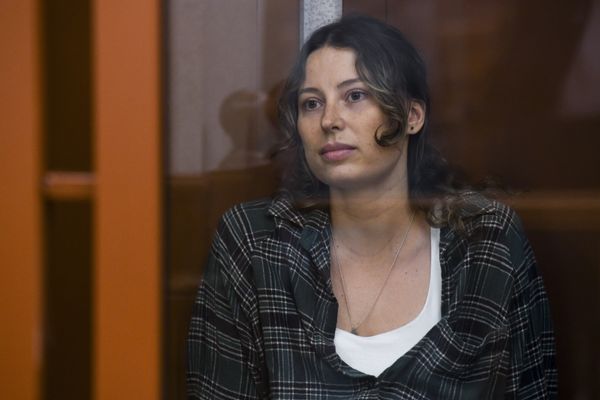
For all the intricacies in the skillsets and tactical approaches of Tyson Fury and Oleksandr Usyk, some observers simply believe the Briton’s size will be the deciding factor on Saturday.
It sounds reductive, yet there is a genuine chance that it is true. Some of those who offer this prediction even suggest that Usyk is the slicker boxer, marginally, but that any technical advantage held by the southpaw will be erased by Fury’s 6ft6in height (don’t believe the billed 6ft9in), 85in reach and 262lb weight – all of which eclipse Usyk’s 6ft3in, 78in and 223lb.
We might not know the truth until the first bell rings in Saudi Arabia, but the reason so many pundits have the undisputed heavyweight title fight as a 50-50 is because both boxers are fast, smart, creative, adaptable, and have plenty of heart. Then there is the fact that the Briton, 35, and Ukrainian, 37, are both champions and both unbeaten.
Yet it is because of these shared qualities that some predictions hinge so heavily on Fury’s size advantage; it is one of very few clear factors that differentiate the champions, as well as the aforementioned contrasting stances (Fury switches but typically stands orthodox, whereas Usyk usually fights southpaw). Maybe Fury’s size will enable him to knock out Usyk, to survive the Ukrainian’s harshest offence, to lean on and wear down Usyk.
Yet while Fury outweighed Usyk by around 40lb at Friday’s weigh-in, the Briton is significantly lighter than the career-heaviest 277.7lb at which he barely beat Francis Ngannou in October. Meanwhile, Usyk has consistently tipped the scales at just over 220lb since moving up to heavyweight (his was initially misread as 233.5lbs on Friday). Did Fury slim down to stay mobile against the smaller man, who many expect to be lighter on his feet than the Briton?

At the weigh-in, former world champion Barry Jones told The Independent: “I think too much is made of the weight. The weight is important, because the bigger guy needs to be bigger, but you need to be able to move. And carrying weight in late rounds can drain you. But ultimately it’s about who gets it right tactically, and if Fury can establish his jab. If he can’t, and Usyk can get underneath that long reach and put him under pressure, it’ll take more out of Fury to be reactive. But Usyk can’t bully Fury.”
George Groves, himself a former world champion, told The Independent: “Fury has come in lighter, and that makes sense for him. He might want to be nimble, light on his feet, keep the fight at long range. But I think Usyk will believe he can hurt Fury, regardless of what weight Usyk was coming in at. Fury has had to get off the floor to win before, so he’s shown vulnerability. And Usyk isn’t a monstrous puncher, but he is heavy-handed and lands accurate, technically sound shots, and he does stop a lot of fighters. It’s not usually a one-punch finish, but he breaks you down, and that will be his plan for Fury; he might expect Fury has to get off the floor.”
Richie Woodhall, who reigned as WBC super-middleweight champion from 1998 to 1999, added: “Fury has had to get the balance right between being the bigger man and being able to move. He has to be fairly light on his feet to compete with Usyk. He’s in against a genius who’s very good on his feet, so if Fury is flat-footed... but Tyson, for his size, is very good on his feet. The biggest opponent Usyk fought was Derek Chisora [255.5lb], and Usyk struggled with him. Usyk won, but it was quite close. Tyson is heavier than that.”

Earlier in the night, Olympic medalist Frazer Clarke had this to say: “I think we’re making too much of a big deal about [the weight]. Whatever Tyson weighs, he’s still nearly 3st heavier than Usyk, so I don’t know how much that matters. Fury is still enormous compared to Usyk.
“Maybe it will matter tactically, but even if you lean on someone and you’re the same weight, it tires them out. [But having that extra weight] affects your speed, feet, timing. It’s like carrying bags of sugar on your back. But Fury may aim to be built for speed and power.”
Earlier in the day, Clarke sat at a table with Lennox Lewis and Evander Holyfield – who contested the last undisputed heavyweight title fight, in 1999 – and Larry Holmes and Roberto Duran.
“I asked them all who will win, and I got four different answers,” Clarke laughed. “If they don’t know, and they’re on the fence, we’re all in the dark! They’re the masters. But for an undisputed fight, that’s exactly how it should be.”







